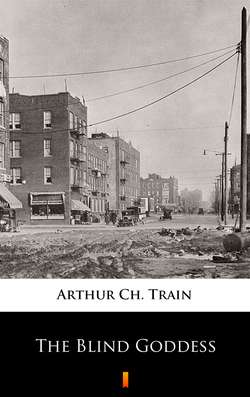Читать книгу The Blind Goddess - Arthur Ch. Train - Страница 4
На сайте Литреса книга снята с продажи.
ОглавлениеAUTHOR’S INTRODUCTION
The decision of my publishers to reissue, under the title of “The Criminal Court Series,” a set of five volumes made up of three of my novels and two collections of “Mr. Tutt” stories, is proof not only of the perennial interest of the public in the administration of criminal justice but of the vitality of the books themselves.
This interest arises in part from our realization that not only is the distinction between crime and sin often highly arbitrary, but that, save for the Grace of God and the statutes, we might easily find ourselves being hurried away to the Tombs in the Black Maria. Moreover, the criminal courts furnish the bulk of authentic drama in protected modern life, and the otherwise tranquil burgher finds in what goes on there a vicarious substitute for the sabre-toothed tiger hunts among his stone-age ancestors and the skirmishes with hostile Indians of covered-wagon days.
Every one enjoys watching a well-conducted criminal trial–particularly if it be that of a prisoner fighting for his life, where the struggle between the prosecuting attorney and the defendant’s counsel is a last vestigial reflection of Roman gladiatorial combat. We even derive pleasure from the pallid and usually inaccurate reflection of similar scenes upon the stage or screen. For like reasons persons of both sexes and of all degrees of intelligence eagerly devour mystery novels, detective stories and narratives dealing with crime and its punishment, which, whether factual or fictitious, offer essential elements of drama or melodrama,–crime, pursuit, capture, and retribution. Each has a villain and ofttimes a hero, with whom the reader inevitably identifies himself, whether the latter be a young Galahad of a district attorney attacking the dragon of corruption or an innocent defendant unjustly accused. It is a first-class entertainment if nothing more,–but it ought to be very much more.
No one studying the administration of criminal justice can fail to be impressed, first, by the care with which the law ostensibly protects the liberties of the citizen, and second, by how valueless the law is if it be interpreted and applied by unjust or ignorant men.
That is the vital lesson to be learned in what we term “courts of justice.” We may have the best laws in the world, positive guarantees of freedom, but any tyrant or ignoramus upon the bench, or any corrupt or overzealous district attorney, while rendering them lip service, can set them at naught as ruthlessly as a Hitler or a Mussolini. When that happens–when, under the technical guise of law or by means of subtle guile, a judge or a prosecutor in fact circumvents or overrides the safeguards which the statutes have enacted to preserve a defendant’s rights, what is his lawyer to do? Must he tamely allow his client to be sent to the electric chair by a gullible jury who assume that every salaried officer of the state must be a white-robed angel, or is he not, under the circumstances, ipso facto released from his oath to support the laws which he took cojointly with them, and justified, to save his client’s life, in fighting fire with fire? This is the question I posed in the first story of “Mr. Tutt and Mr. Jefferson,” in the volume entitled “Old Man Tutt.”
If I have suggested some of the many ethical problems presented by the administration of the law, when either honestly or dishonestly administered, and particularly if I have succeeded in demonstrating the fundamental difference between law and justice, and that some of our present statutes, including our supposedly sacrosanct rules of evidence, are in themselves palpably unjust, as well as often absurd, I shall be content.
Regarding the five volumes comprising this set I may say that, of the nine original books about “Mr. Tutt,” the two included–“Old Man Tutt” and “Mr. Tutt Takes the Stand”–are probably the most representative. By the time they were written the old lawyer had been trying his cases nearly twenty years and had grown in wisdom and stature and in favor with man at least, if not with God.
“The Blind Goddess” is certainly my most comprehensive novel depicting the inner workings of the criminal courts and district attorney’s office. In fact I know of no other book that attempts to cover the whole panorama from arrest to conviction in the same way.
“Ambition” has always been my favorite novel. While its emphasis is upon the civil side of the law rather than the criminal, it shows clearly enough the temptations to which a young lawyer is exposed in either branch and the vagueness of the line that separates what is regarded as ethical from what is denounced as crime.
“Manhattan Murder” is a story of the gangster era in New York City, now effectually terminated. It might well seem fantastic but for the familiar accounts in the press of the activities of such gory criminals as “Dutch” Schultz, Derringer, “Legs” Diamond, and “Al” Capone.
Taken together, these five books present in fictionized form a fairly complete and accurate picture of the procedure by which those indicted for crime are convicted or acquitted.
ARTHUR TRAIN
